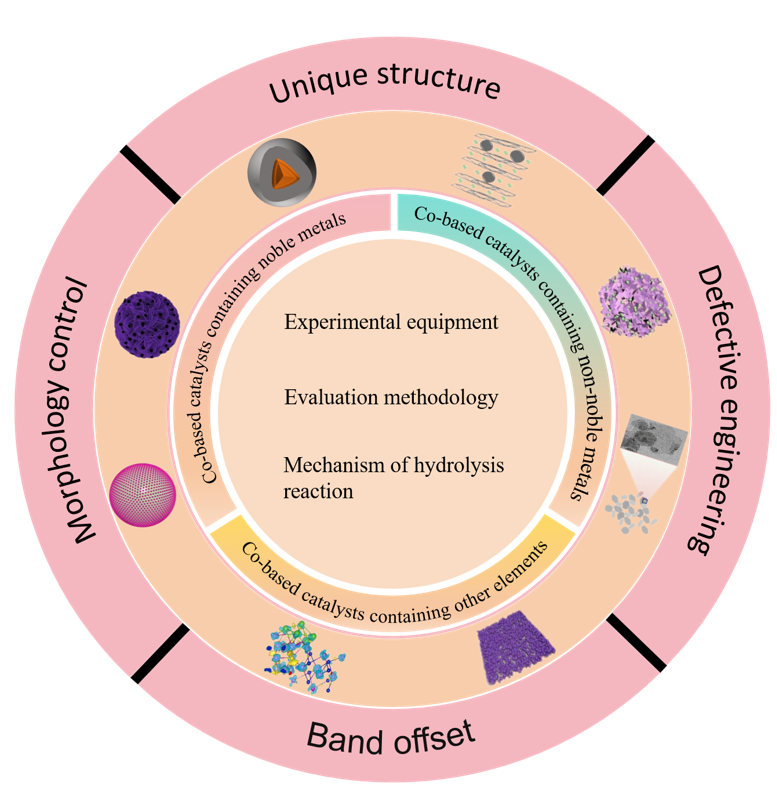近期,我们研究生钱宇辉、教师卞婷(通讯)、张刘挺(通讯)等的综述成果“A brief review of performance optimization and mechanism investigation of Co-based catalysts for hydrogen production from NaBH4 hydrolysis”在《Fuel》(IF=7.5)上发表。
论文简介如下:
Currently, problems such as the depletion of fossil fuels and environmental pollution are becoming more and more serious. Hydrogen, with its non-toxicity and abundant source, is a promising energy source to replace traditional fuels. Sodium borohydride (NaBH4) is considered a promising material for hydrogen production due to its high hydrogen density of 10.8 wt% by weight and its ability to produce H2 by hydrolysis under ambient conditions. The hydrolysis process of NaBH4 itself is very slow, but many metal-based catalysts (e.g., Ru, Co, etc.) exhibit excellent catalytic activity during the hydrolysis process. Co-based catalysts are extensively utilized in the study of hydrogen production from NaBH4 hydrolysis due to their high activity, affordability, and stability. Herein, we will provide an overview of the recent advances in the hydrogen production of NaBH4 hydrolysis over Co-based catalysts. The unique electronic structure and multivalent states of Co provide multiple pathways to improve its catalytic performance. The electronic structure and valence band center of the catalyst can be modulated by component control, thus altering the catalytic performance. This paper categorizes Co-based catalysts into those containing noble metals, non-precious metals, and other elements. It examines how the synergistic effects of these elements, along with the catalysts' microscopic morphology and unique structures, affect their catalytic performance. Additionally, it identifies potential factors contributing to the decline in performance during hydrolysis cycles. Finally, the future development prospect of Co-based catalysts is briefly overlooked.


